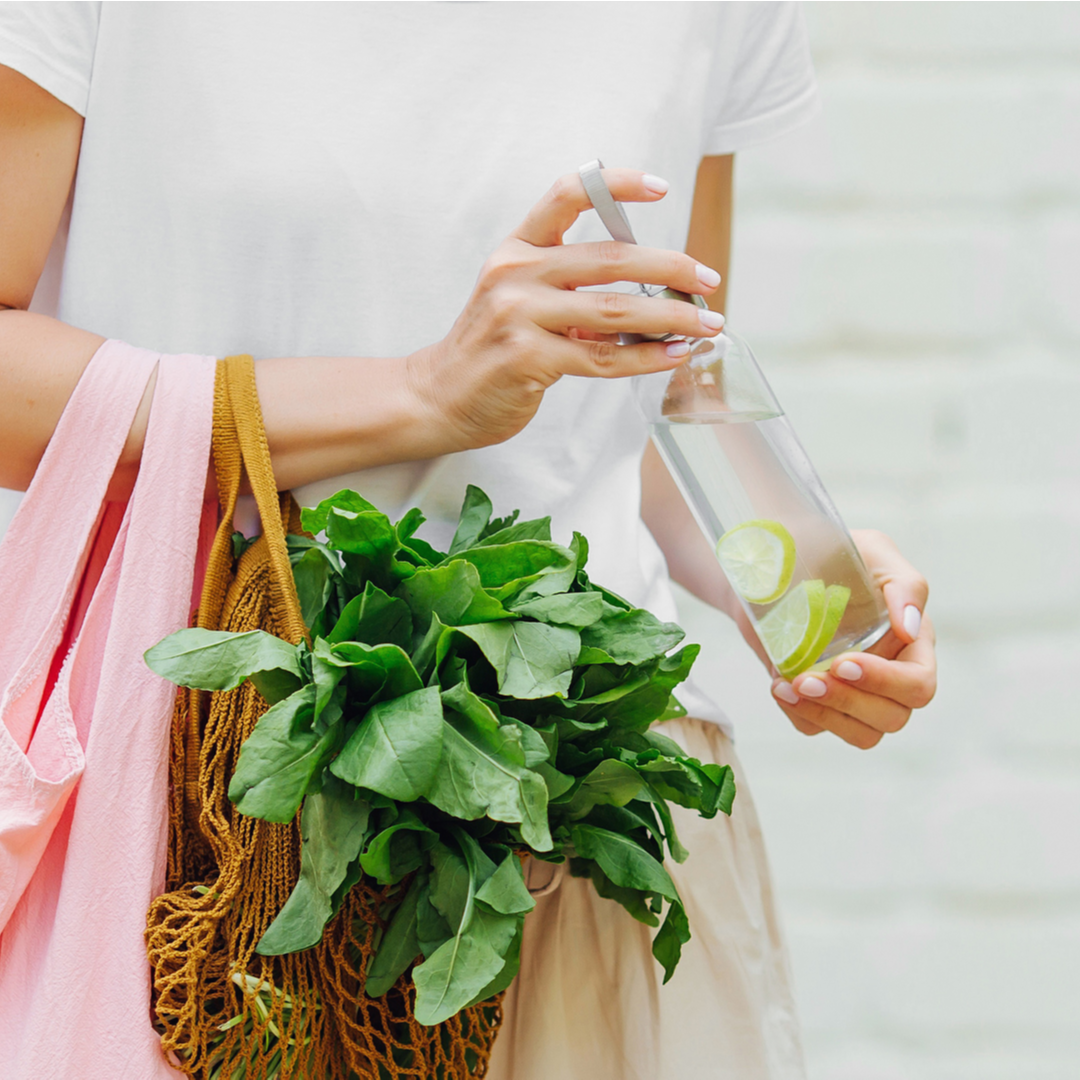
Not all plastic alternatives are created equal. It’s important to note that substitutes for single-use plastics should be carefully chosen. We suggest first opting for reusable products, prior to moving to single-use materials. Substitutes should be made of non-plastic materials such as paper, sugar cane, bamboo, or other similar materials. Remember: the Straw/Stirrer Ordinance does not allow for biodegradable or compostable plastics as substitutes.
Biodegradable and compostable plastics were not considered because it can take several months for it to decompose fully and by the time it decomposes, it could still impact our oceans and marine life just like regular plastic. According to The United Nations Environment Programme (UNEP) biodegradation rate can be very dependent on the surrounding environment and the complete plastic biodegradation is a process that is temperature dependent and which happens when none of the polymer remains, which can take several months to occur. UNEP concluded that biodegradable plastics will not significantly decrease the quantity of plastics entering our oceans or reduce the risk of physical and chemical impacts on the marine environment.
Plastic Alternatives
Dine in Style
The trend is clear: single-use plastic utensils are on their way out. Throw away utensils have become a large part of our society especially as dining out and delivery have become the go-to choice for Americans. Help reduce their impact on our environment by opting for natural alternatives like the ones below.
Alternatives

Reusable: Pack a reusable set for lunch at work, picnics in the park, or take-out nights at home. Small daily choices like this protect Miami Beach’s environment and reduce waste citywide. Washing and reusing the same set again and again saves the raw materials, water, and energy needed to make disposable cutlery.
 Wood: Wooden cutlery is often made from solid wood such as birch. Be sure to look for options that are sustainably harvested (such as Forest Stewardship Council certified). Wooden utensils are ideal for everyday use or special events.
Wood: Wooden cutlery is often made from solid wood such as birch. Be sure to look for options that are sustainably harvested (such as Forest Stewardship Council certified). Wooden utensils are ideal for everyday use or special events.
 Edible: Depending on the manufacturer, edible cutlery can be made from a variety of grains including rice and flour. These are also a great way to complement special meals.
Edible: Depending on the manufacturer, edible cutlery can be made from a variety of grains including rice and flour. These are also a great way to complement special meals.
 Bamboo: Bamboo utensils, preferably those made with organic bamboo, are made from a renewable resource that is both biodegradable and compostable. Now you don't have to worry about the negative environmental effects that some other disposable products have.
Bamboo: Bamboo utensils, preferably those made with organic bamboo, are made from a renewable resource that is both biodegradable and compostable. Now you don't have to worry about the negative environmental effects that some other disposable products have.
The average American buys takeout or restaurant meals approximately 2.5 times per week. Not only can this easily add up in terms of costs but also in the quantity of disposable takeout boxes that come with the food. Consider moving towards takeout containers that aren't plastic and choose for more naturally based options. Your planet will thank you!
Alternatives
 Bagasse: Bagasse is the fiber left after sugarcane is pressed for juice. Instead of throwing that fiber away, manufacturers mold it into sturdy, food-safe containers that work for both hot and cold meals. When you pick bagasse over plastic or foam, you get the convenience of single-use packaging that are compostable.
Bagasse: Bagasse is the fiber left after sugarcane is pressed for juice. Instead of throwing that fiber away, manufacturers mold it into sturdy, food-safe containers that work for both hot and cold meals. When you pick bagasse over plastic or foam, you get the convenience of single-use packaging that are compostable.
 Wheatstraw: This material is a rapidly renewable resource and is a great option for your take-out needs. In addition to being biodegradable and compostable, wheatstraw containers can be microwaved and used for hot and cold foods.
Wheatstraw: This material is a rapidly renewable resource and is a great option for your take-out needs. In addition to being biodegradable and compostable, wheatstraw containers can be microwaved and used for hot and cold foods.
Shop in Style
Plastic bags are detrimental to the community because they do not fully degrade in our oceans or land environment and introduce unsafe chemicals into our environment. Plastic bags create the potential for injury to or death of marine animals through entanglement and ingestion. Further, it takes anywhere between 500 to 1000 years to decompose. The expansive usage of single-use plastic bags and their typical disposal rates creates an impediment to the City's waste reduction and recycling goals while creating unsightly litter. The widespread use of single-use plastic bags presents recycling challenges and frequently contaminates materials sent to recycling facilities. As an alternative, reusable bags can reduce waste and litter, protect wildlife, and conserve resources.
The city's plastic bag Ordinance 2018-4208 will prohibit the use/distribution of single-use carry out plastic bags on the right of way and to sidewalk café patrons.
Alternatives
 Paper: This bag style is generally made from recycled paper, which is gathered and processed within recycling paper mills. In some instances, the paper is made from fresh paper pulp which is the thin shavings of wood from trees. Paper bags are also recyclable as long as they’re not soiled.
Paper: This bag style is generally made from recycled paper, which is gathered and processed within recycling paper mills. In some instances, the paper is made from fresh paper pulp which is the thin shavings of wood from trees. Paper bags are also recyclable as long as they’re not soiled.
 Cotton: Cotton bags are a fashionable alternative to plastic. Be sure to look for bags that are 100% cotton. You can also take it a step further by opting for organic cotton options.
Cotton: Cotton bags are a fashionable alternative to plastic. Be sure to look for bags that are 100% cotton. You can also take it a step further by opting for organic cotton options.
 Linen: Linen, similar to cotton and other textile based bags, is a natural, biodegradable material. Linen is made from the cellulose fibers that grow inside the stalks of a flax plant which is one of the oldest cultivated plants in history.
Linen: Linen, similar to cotton and other textile based bags, is a natural, biodegradable material. Linen is made from the cellulose fibers that grow inside the stalks of a flax plant which is one of the oldest cultivated plants in history.
When shopping for produce, it’s difficult to not be tempted to pull at the wheel of smaller plastic bags scattered within our grocery stores. The good news is that alternatives also exist for produce bags!
Alternatives
 Cotton:This textile is made from the fiber harvested from the cotton plant. Like many textile based produce bags, cotton bags help keep fruits and vegetables fresh longer than plastic bags. The breathable fabric allows ethylene gas to escape when compared to plastic alternatives.
Cotton:This textile is made from the fiber harvested from the cotton plant. Like many textile based produce bags, cotton bags help keep fruits and vegetables fresh longer than plastic bags. The breathable fabric allows ethylene gas to escape when compared to plastic alternatives.
 Muslin: Muslin is a type of thin cotton weaving that allows more breathability. It resembles cheesecloth and is both reusable and washable.
Muslin: Muslin is a type of thin cotton weaving that allows more breathability. It resembles cheesecloth and is both reusable and washable.
Sip in Style
Did you know that plastic coffee cups are not recyclable? Whether they’re plastic coffee cups or smoothie cups, they’re not accepted at most recycling facilities in South Florida. Additionally, paper coffee cups often have a plastic lining (PLA or Polylactic acid) on the inside which keeps coffee cups from fully biodegrading. Unfortunately, coffee cups without the PLA lining are difficult to locate. Consider going reusable to help avoid this issue or choose one of the alternatives below to reduce your impact on the environment. By doing so, you can help make a dent in the estimated 58 million disposable coffee cups that Americans throw away every year.
Alternatives
 Reusable: There's nothing better than a reusable coffee cup. These alternatives can include options such as stainless steel, ceramic, glass, and even porcelain. The options are nearly endless.
Reusable: There's nothing better than a reusable coffee cup. These alternatives can include options such as stainless steel, ceramic, glass, and even porcelain. The options are nearly endless.
 Paper: Choose a plain paper cup without a PLA (a plant-based plastic) coating. Cups lined with PLA act like regular plastic: they can’t be recycled or composted and usually end up in the landfill. Pick an unlined paper cup to reduce contamination in our recycling stream and help keep waste out of local landfills.
Paper: Choose a plain paper cup without a PLA (a plant-based plastic) coating. Cups lined with PLA act like regular plastic: they can’t be recycled or composted and usually end up in the landfill. Pick an unlined paper cup to reduce contamination in our recycling stream and help keep waste out of local landfills.
 Bagasse: An excellent replacement for plastic or paper cups, made from sugarcane fiber . Bagasse is the fibrous waste left over after extraction of the sugar from the sugarcane.
Bagasse: An excellent replacement for plastic or paper cups, made from sugarcane fiber . Bagasse is the fibrous waste left over after extraction of the sugar from the sugarcane.
Single-use plastic straws are a source of chronic litter and contamination of the beaches and waterways. The average plastic straw is estimated to be used for only 15 minutes before being discarded and takes approximately 200 years to decompose. It is amongst the top 10 items that are collected annually during the Ocean Conservancy’s International Coastal Cleanup event. During the one day event in 2016, volunteers collected almost half a million plastic straws from Miami-Dade County alone.
In 2019, Ordinance 2019-4295 was adopted to extend the existing single-use plastic straw/stirrers ban citywide and will apply to all properties and public spaces. The ordinance does not allow for biodegradable or compostable plastics as substitutes.
Alternatives
 Strawless: Most beverages are easy to enjoy straight from the cup. Choosing to go straw-free turns a simple habit change into environmental impact. Every straw declined means less plastic litter on streets, beaches, and in Biscayne Bay. It also reduces the resources needed to make, ship, and dispose of single-use plastics.
Strawless: Most beverages are easy to enjoy straight from the cup. Choosing to go straw-free turns a simple habit change into environmental impact. Every straw declined means less plastic litter on streets, beaches, and in Biscayne Bay. It also reduces the resources needed to make, ship, and dispose of single-use plastics.
 Paper: Made from 100 % paper with no plastic lining, these straws break down naturally and can be composted where facilities exist. Choosing paper over plastic keeps micro-plastics out of Biscayne Bay and supports the City’s single-use plastic reduction goals.
Paper: Made from 100 % paper with no plastic lining, these straws break down naturally and can be composted where facilities exist. Choosing paper over plastic keeps micro-plastics out of Biscayne Bay and supports the City’s single-use plastic reduction goals.
 Bagasse(Sugarcane): Bagasse is the fiber left after sugarcane is pressed for juice. Manufacturers can mold it into sturdy, straws that work for both hot and cold drinks. When you pick bagasse with no plastic, you get the convenience of single-use packaging that is compostable.
Bagasse(Sugarcane): Bagasse is the fiber left after sugarcane is pressed for juice. Manufacturers can mold it into sturdy, straws that work for both hot and cold drinks. When you pick bagasse with no plastic, you get the convenience of single-use packaging that is compostable.
 Bamboo: Bagasse is the fiber left after sugarcane is pressed for juice. Instead of throwing that fiber away, manufacturers mold it into sturdy straws for both hot and cold drinks.
Bamboo: Bagasse is the fiber left after sugarcane is pressed for juice. Instead of throwing that fiber away, manufacturers mold it into sturdy straws for both hot and cold drinks.
 Metal: Metal straws can be made of aluminum, stainless steel and titanium. They are durable and great alternative to single-use plastic straws since they are reusable. Many of these straws are made from high-quality metals and have brushes available for easy cleaning.
Metal: Metal straws can be made of aluminum, stainless steel and titanium. They are durable and great alternative to single-use plastic straws since they are reusable. Many of these straws are made from high-quality metals and have brushes available for easy cleaning.
Plastic water bottles are one of the commonly found items within our streets and our stormwater system! The good news is that Miami-Dade County has exceptional tap water quality as demonstrated by the county’s annual water quality report: 2024 Water Quality Report. The primary source of drinking water for Miami Beach comes from the Biscayne Aquifer and is located just below the land surface in South Florida. The Biscayne Aquifer is composed of a porous rock with small cracks and holes through which rainwater seeps and fills.
Our high quality tap water is a great reason to break up with single-use plastic water bottles. If you already own a water bottle, stop by any of our water bottle refill stations to get a taste of great Everglades grown tap water!
Alternatives
 Stainless Steel: This alternative is normally BPA (Bisphenol A) free and there are options such as a vacuum sealing, insulation, and the incredible ability to regulate temperature. Some brands are even capable of keeping your drink cold for 24 hours or tea hot for 12 hours.
Stainless Steel: This alternative is normally BPA (Bisphenol A) free and there are options such as a vacuum sealing, insulation, and the incredible ability to regulate temperature. Some brands are even capable of keeping your drink cold for 24 hours or tea hot for 12 hours.
 Glass: This alternative brings a touch of elegance to your hydration habits. Many glass bottles are highly reusable, BPA free, dishwasher safe, and don't alter the taste of your drinking like many plastics do.
Glass: This alternative brings a touch of elegance to your hydration habits. Many glass bottles are highly reusable, BPA free, dishwasher safe, and don't alter the taste of your drinking like many plastics do.

